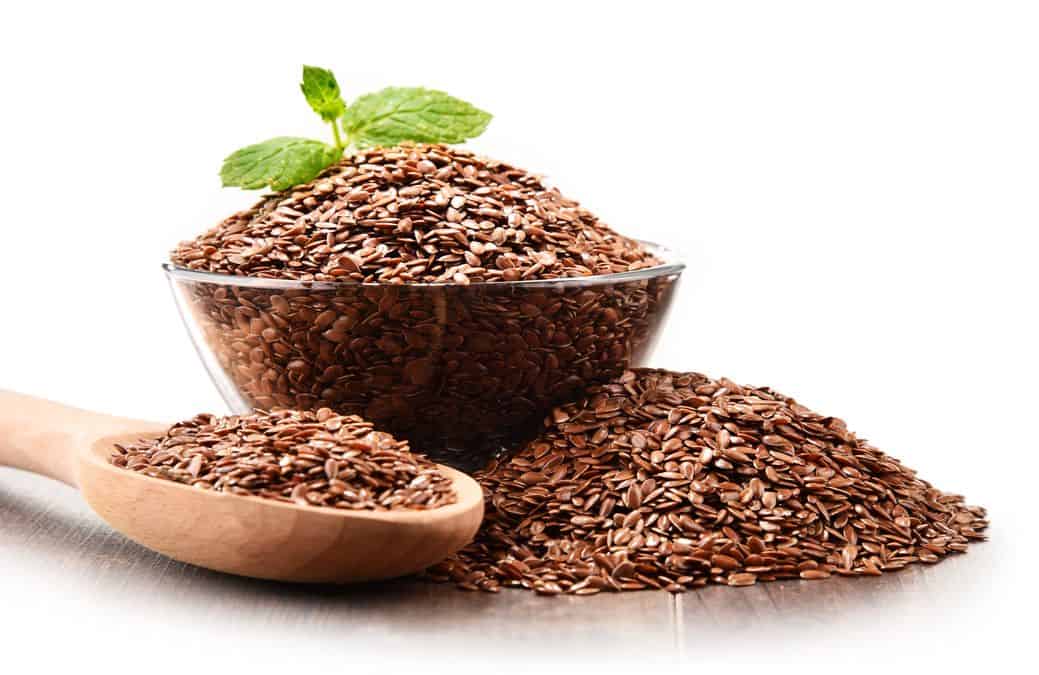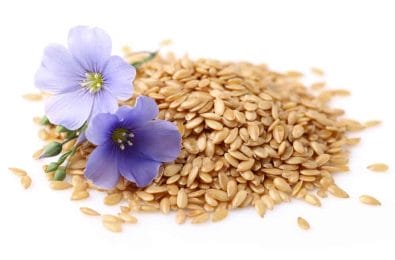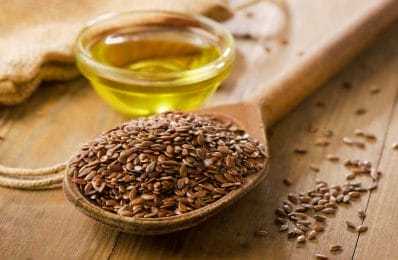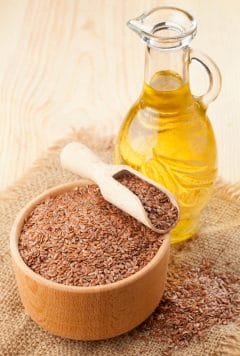
Flaxseed – grains of flax, not only good for weight loss
A weight loss treatment, with the help of which we want to get rid of all the excess weight, should not only be effective, but also safe, not carrying any risk to our health. Therefore, it is not worth torturing your body with untested diets or remedies bought from an uncertain source, which usually do not even have approvals allowing them to be used. Weight loss can quickly turn into hell and instead of losing weight, we will have to undergo long-term treatment. It is better to trust the natural ways, the power of nature and introduce flaxseed with many healing and slimmingproperties into your diet.
Contents
- 1 Flaxseed – what is it
- 2 Overweight and obesity – serious diseases of civilization
- 3 Reasons for increasing body weight
- 4 Diseases caused by overweight and obesity
- 5 Flaxseed – what can be found in its composition
- 6 Flaxseed – the most important health properties
- 7 Flaxseed – contraindications and method of use
Flaxseed – what is it

Under the term linseed (Semen lini) are small seeds of the common flax (Linum usitatissimum), a plant known and used by man for thousands of years. It is an annual plant, native to the Middle East, growing both in the wild and cultivated on a larger scale. The flax stem is up to 70 cm long, branching upwards, the leaves are lanceolate and the flowers, finely toothed at the edges, are white or blue in colour. The flax plant produces seedpods which contain small, flattened and oily seeds, golden or brown in color and are used in natural medicine.
Overweight and obesity – serious diseases of civilization
Overweight and obesity are two dangerous diseases, already recognized as civilization diseases, threatening not only health, but also life. The statistics of the National Health Fund are frightening; in the case of adults, 68 per cent of men and 53 per cent of women are overweight, while morbid obesity affects 25 and 23 per cent respectively. Children are also getting fatter, with 31 per cent of boys and 20 per cent of girls overweight and 13 per cent and 5 per cent of children obese respectively.
These diseases cannot be ignored and must be prevented as soon as we notice that body weight starts to deviate from the norm according to the BMI (Body Mass Index) coefficient. It is also worth distinguishing between overweight and obesity, the treatment of which is effectively supported by linseed. Overweight is understood as exceeding the norm calculated from BMI by a maximum of 10 percent, and any larger deviations mean that we are already entering the stage of obesity.
Reasons for increasing body weight
Increasing weight is a cause for concern, but not for panic, because you can stop this process in time, including with the use of linseed. However, the basis is to make a proper diagnosis, to identify all the causes of the fact that we begin to gain weight, otherwise we expose ourselves to additional problems. Rapid and sometimes difficult to control weight gain is caused by, among other things:
- improper diet, responsible not only for overweight or obesity, but even ruining the whole state of health. An intensive lifestyle often leaves us no time to prepare easily digestible, yet nutritious meals, so we settle for fast food and harmful, highly processed food. It lacks even the basic nutrients, which is visible in the form of growing folds of fat deposited in different parts of the body;
- a sedentary lifestyle that affects more and more people, and it must be admitted that most of us simply avoid any physical activity, movement in the fresh air, not to mention sport;
- psychological factors, stress and other nervous tensions manifesting themselves among other things in an uncontrollable appetite, snacking between scheduled meals, or a syndrome of night-time or compulsive eating;
- hormonal disorders which also disturb the work of organs responsible for digestion;
- genetic factors, meaning a tendency to gain weight inherited from an older generation of the family.
Diseases caused by overweight and obesity
An appropriately selected slimming diet, of which linseed becomes an important component, and a daily dose of exercise, will allow us to avoid many dangerous diseases:
- hypertension, ischemic heart disease, myocardial infarction, atherosclerosis, i.e. heart diseases practically inseparable from obesity;
- degenerative disease of the joints of the lower limbs and spine, which are constantly subjected to heavy loads;
- varicose veins, or chronic venous insufficiency, mainly in the legs;
- diabetes of both degrees, 1 and 2, a disease that is inextricably linked with increasing weight, becoming the cause of further ailments;
- diseases of the digestive system, disrupting proper digestion and burning of excess body fat;
- lowered libido, and the related ailments are sometimes so strong that they prevent normal sexual life, also increasing the risk of infertility;
- diseases that interfere with the functioning of the respiratory system, such as sleep apnea, which can cause insomnia;
- menstrual disorders associated with a dysregulated hormonal system, making it difficult to get pregnant.
Flaxseed – what can be found in its composition

The richness of composition of flaxseed may surprise you, because you will find in it almost everything you need not only to cope with growing excess weight, but also to ensure good health for many years. Of course, we should remember that adding flaxseed to meals, or taking dietary supplements, of which it is an ingredient, will not make us lose weight, if we do not follow proper dietary recommendations and do not change our lifestyle for a more active one. Fortunately, the biologically active and highly nutritious components contained in the linseed can help, and it is worth appreciating such components as:
Vitamin A
It is in fact a mixture of several substances, mainly retinol and beta-carotene, and in the body it is deposited in the liver and the fatty tissue. Its action, also in the case of flaxseed, specialists consider complex, and the most noteworthy are:
- faster regeneration of damaged cells;
- strengthening immunity;
- responsibility for proper vision;
- protection of the body against the action of bacteria, viruses and fungi;
- participation in the production of red blood cells;
- strengthening weakened hair, skin and nails;
- increasing potency in men.
B vitamins
The numerous healing properties of this group of vitamins make regular consumption of flaxseed so beneficial to health and, of course, faster weight reduction and burning of fat cells. The effects of flaxseed are intensified by:
- vitamin B1 (thiamine), which supports the nervous system, cardiovascular system and natural immunity, intensifies the burning of carbohydrates;
- Vitamin B2 (riboflavin), which takes part in the metabolism and red blood cells formation, protects the mucous membrane of the digestive system, has an anti-inflammatory effect;
- Vitamin B3 (niacin), which lowers the level of “bad” cholesterol in blood, regulates blood pressure, reduces the amount of toxins, improves the condition of the skin and hair, takes part in the synthesis of sex hormones;
- vitamin B6 (pyridoxine), which takes part in synthesis of proteins and glycogen, metabolism of fats and carbohydrates, hemoglobin production processes, supports nervous system, regulates cysteine level;
- Vitamin B9 (folic acid), essential for pregnant women, regulates spermatogenesis, prevents anemia, conditions the function and proper development of cells;
- Vitamin B12 (cobalamin), responsible for the metabolism of proteins, carbohydrates and fats, the process of energy production in body cells and red blood cells, helping to maintain mental balance, supporting the nervous system and brain function.
Vitamin C
One of the most important for human health, also known as ascorbic acid. Its main task, as an antioxidant, is to fight against free radicals, oxygen atoms deprived of one electron, acting “aggressively” and being the cause of various diseases, including cancer. Other functions performed by vitamin C include:
- prevention of cardiovascular diseases;
- alleviation of symptoms of neurodegenerative diseases such as Alzheimera disease;
- strengthening of the weakened immune system;
- participation in the synthesis of collagen, a component of connective tissue, essential for healthy joints and skin;
- reduction of negative effects of stress.
Minerals
Like all plants with proven medicinal properties, flaxseed also contains large amounts of valuable minerals:
- calcium, essential for strong bones and teeth, their building material, the correct level of which helps avoid not only painful fractures, but also diseases such as osteoporosis;
- zinc, supporting the work of many internal organs, strengthening weakened hair and nails, counteracting macular degeneration, regulating menstruation, used in the treatment of acne, relieving back pain and joint pain
- potassium, which regulates, among other things, the pH of cells, is responsible for correct conduction of nerve impulses, brain function, heart work, muscle tension, insulin secretion
- selenium, which reduces the effects of oxidative stress, minimizes the risk of cancer, is necessary for the functioning of the thyroid gland, strengthens immunity, accelerates the removal of toxins and heavy metals from the body
- magnesium, which protects against cardiovascular diseases, takes part in the metabolism of nutrients, strengthens the memory, improves digestion, prevents osteoporosis, especially when provided together with adequate doses of vitamin D;
- manganese, an element without which our nervous system cannot do without, enhancing potency, protecting the skin from drying out and hair from falling out, increasing the absorption of other nutrients such as iron.
What else does flaxseed have in its composition
Vitamins and minerals are not the only components found in flaxseed, in addition to them it contains other, of which the most important two are:
- Omega – 3 fatty acids, with a wide range of health-promoting effects, regulating blood pressure, preventing platelet aggregation, inhibiting brain aging processes, relieving stress, speeding up metabolism, reducing triglyceride levels in the blood;
- dietary fiber, essential for proper digestion, regulates bowel movements, prevents painful constipation, maintains proper intestinal microflora and blood cholesterol levels, reduces the amount of glucose, which promotes weight loss.
Flaxseed – the most important health properties
The composition of linseed speaks for itself and there is no need to delay in making it one of the elements of the daily diet. However, it is worth summarizing all its health-promoting properties, which may make the decision easier for all those still undecided. Flaxseeds, when administered in various forms, carry the following health benefits:
- alleviating symptoms of intestinal and stomach ailments that can interfere with digestion, such as problems with bowel movements caused by constipation or diarrhea, peptic ulcer disease, and intestinal peristalsis disorders;
- Reduction of harmful cholesterol LDL fraction, important for the treatment and prevention of cardiovascular diseases. Flaxseed also reduces the level of the aforementioned triglycerides, and all this together minimizes the risk of hypertension, thrombosis and atherosclerosis;
- lowering blood sugar levels while reducing its rapid fluctuations;
- alleviation of menopause symptoms, ailments accompanying menopause in women by regulating the level of estrogen, and thanks to anti-cancer properties, linseed protects against the development of breast cancer and cervical cancer;
- reducing the negative effects of stress, improving mental mood, maintaining a good mood in any, even the most nervous situation;
- more efficient cleaning of the body from toxins and protection of the kidneys;
- assistance in weight loss, thanks to the presence of dietary fiber, which suppresses the appetite and gives a long-lasting feeling of satiety
- restoration of hormonal balance, which contributes to the prevention of cancer and other diseases whose cause may be disorders of hormone secretion;
- Prevention of cold, flu and other respiratory tract infections, reducing the feeling of related ailments, sore throat, runny nose and cough.
Flaxseed – contraindications and method of use

Consumption of common flaxseed usually does not cause any side effects, if, of course, we follow the recommended amounts, otherwise we must reckon with even dehydration of the body. Flaxseed is not recommended for people suffering from constipation, those taking anticoagulants or pregnant or breast-feeding women.
Linseed can be consumed in many ways, in the form of seeds, ground or whole, or in dietary supplements containing it. The seeds are a valuable addition to meals, salads, cakes or desserts, you can also make a healthy jelly by pouring a few tablespoons of hot water over the seeds. They will prove to be a great help in slimming, which will be further supported by using slimming pills, and their latest ranking can be found at this link:
BEST WEIGHT LOSS PILLS – RANKING 2021
Sources:
- https://www.healthline.com/nutrition/benefits-of-flaxseeds
- https://www.healthline.com/health/flax-seeds-for-weight-loss



